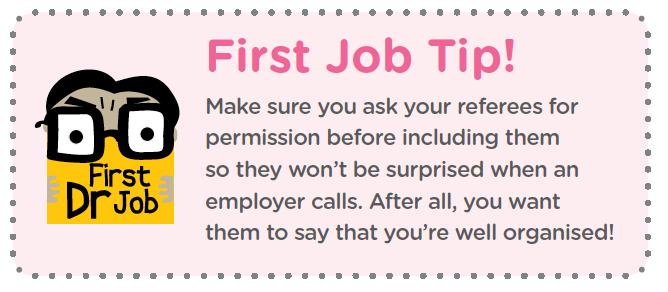5: Job application essentials
Resumes and cover letters
A resume and cover letter are all about making a good first impression. Make sure there are no spelling errors and double check your work before you send it. Again, don’t worry if you don’t have any work experience to include. Employers know that we all have to start somewhere.
- Include any informal or volunteer work you might have done, like baby sitting or taking care of the neighbour’s garden.
- You can also list your school and extra-curricular activities and achievements, like playing in a sports team, participating in a school production, or getting a high mark or award at school.
- You’ll also need a couple of referees – people a potential employer can contact to ask about you. You could list your school teachers, coach, music tutor – basically any adult (except your parents) who can vouch for you.
Once you’ve written a resume you probably won’t have to change it too much for each application. A cover letter, on the other hand, can and should be customised to the job you’re applying for. This is your chance to explain why you are the person the employer is looking for – reread the job ad carefully and make sure your cover letter specifically responds to all the job requirements that are listed.
Applying online
Most jobs advertised online can also be applied for online. Pay attention to how the employer says they want people to apply – some might prefer an email with your resume attached, others might only accept applications directly through their website.
In person
At a lot of local businesses, the best way to apply for a job is still by handing in a resume and cover letter in person. You can often speak directly to a manager (you might have to ask for them specifically) and make sure that your resume ends up in the right hands.
Dealing with disappointment
- I still haven’t heard back about my last job application, but instead of sitting around waiting I’m going to apply for a few more to increase my chances.
- I was disappointed when I found out I didn’t get the job, but I asked for feedback and they actually gave me some good advice – I’m fixing up my resume now.
- I had to apply for about 20 jobs before I got an interview. It’s pretty competitive out there but I’m glad I didn’t give up.
Activity
Now that you’ve seen some examples, write a draft version of your own resume and cover letter.
- Prepare your resume
- Personalise your cover letter
- Pay attention to the job ad for how to apply
- Don’t take rejection personally

